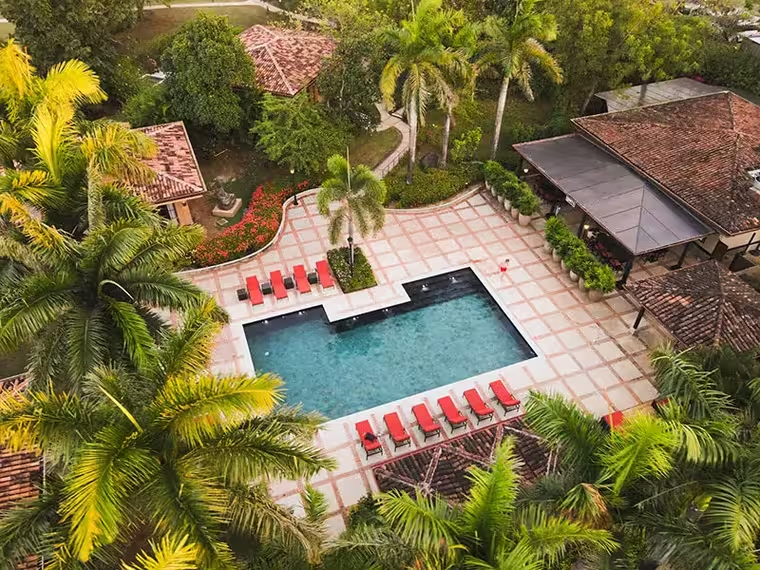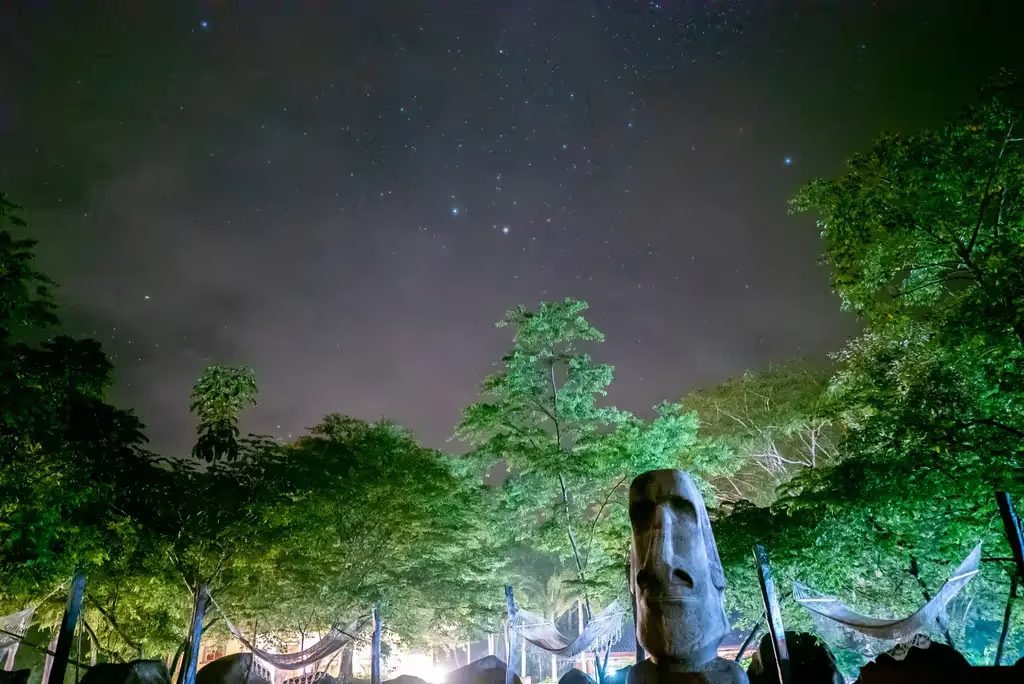How Legal Is Ayahuasca Anyway?


.avif)
Navigating Legal Changes: Ayahuasca's Evolving Global Status
Ayahuasca is a plant that has been used for centuries by indigenous shamans in South America. It is a powerful tool for spiritual communication, healing, and religious ceremonies. In recent years, Ayahuasca has gained popularity in North America and Europe, where people use it for both religious and recreational purposes, as well as for healing or searching for deeper spiritual meaning. This powerful brew combines the Banisteriopsis caapi vine with the Psychotria viridis plant leaves containing DMT, an active ingredient. Many people ask, is Ayahuasca legal?
Is Ayahuasca Legal?
The legal status of Ayahuasca is a complicated issue in Western jurisdictions. While the plants used for making Ayahuasca are generally not illegal in many places, including the United States, Canada, and countries governed by the 1971 Vienna Convention, brewing these plants into tea containing DMT enters a legal gray area. The legality of Ayahuasca can vary significantly depending on the country and jurisdiction in which it is used. In some countries where the plants used to make Ayahuasca are legal, the brew is still classified as a controlled substance, and its use is prohibited. Conversely, in some countries where the brew is legal, the plants used to make it may be banned. Despite being illegal in many countries, Ayahuasca therapy has been granted religious exemption in some cases, allowing certain religious groups to use it as a sacrament in their spiritual practices legally. This exemption recognizes the cultural and religious significance of Ayahuasca to these groups and allows them to continue practicing their faith without fear of legal repercussions.
Despite the uncertain legal status of Ayahuasca therapy, there has been growing support and attention for its therapeutic use, particularly after the decriminalization of psychedelics in several US cities. However, it is important to note that Ayahuasca is still technically illegal and punishable by federal law in the United States.
Ayahuasca's Deep Cultural Roots and Legal Status in South America
Ayahuasca has been a vital part of the cultural and spiritual traditions of indigenous communities in Central and South America for centuries. This plant-based brew is consumed as part of religious or shamanic rituals and carries deep cultural and historical significance. While it is illegal in some countries due to its traditional importance, Ayahuasca is widely tolerated and considered legal in many South American nations. This has led to a growing interest in Ayahuasca tourism, as many people seek its therapeutic and spiritual benefits.
Some countries in Central and South America legally permit the consumption of Ayahuasca. Indigenous communities have embraced Ayahuasca in their traditions and ceremonies for its diverse medicinal properties. Under the guidance of experienced shamans and with respect for the culture and traditions that have developed around its use, Ayahuasca is believed to offer healing and transformative experiences for those who consume it. It has been used for personal growth, healing, and spiritual exploration and is a traditional drink used by indigenous communities in the Amazon region for thousands of years.
Archaeological evidence suggests that small ceramic containers used in Ayahuasca ceremonies have existed since around 2400 BC. Shamanic snuffs containing DMT, bufotenine, and harmine, dating back to 1000 years, have also been discovered in modern-day Bolivia, providing insight into the historical use of Ayahuasca in the region.
Indigenous populations use Ayahuasca for various reasons, including accessing more knowledge, entering an enhanced state, and healing themselves or others. Ayahuasca shamans follow a practice known as dietas, where they consume various plants and plant mixtures, including Ayahuasca, to acquire knowledge from each plant.
It is crucial to respect the cultural significance and practices of indigenous people who have used this potent substance for centuries, even as it gains popularity outside of its traditional use. Unfortunately, various groups, including missionaries, health officials, and guerrilla organizations, have persecuted the use of Ayahuasca and indigenous spirituality. Nevertheless, some indigenous communities still use these sacred plants in ritual settings, such as the Shuar of Ecuador, the Shipibo of Peru, and various Tukano groups in Colombia, and the Inga people who are native to portions of Colombia, Ecuador, and Peru. The use of Ayahuasca and other "plant teachers" or "doctors" is also prevalent among mestizo riverine practitioners in Peru.
Ayahuasca Tourism
Ayahuasca therapy (pronounced as iowaska therapy) has gained global adoption and has had a significant impact on religious and neo-shamanic movements in the West. Scientists worldwide are researching Ayahuasca to determine its possible uses in the Western world. An increasing number of people from Western countries are participating in non-traditional use of Ayahuasca, such as entheogen tourism, which involves traveling to foreign countries to participate in spiritual or religious ceremonies that involve the use of psychoactive substances like Ayahuasca. This trend is becoming more popular and is spreading across South America.
Ayahuasca's Legal Status in the USA
Ayahuasca is a plant-based brew that contains DMT. This active component is classified as a Schedule 1 Substance by the Controlled Substances Act, making it illegal in the United States. However, some state and local governments have decriminalized it for personal use. In a few states, such as Oregon and Washington, and certain cities in California, New York, or Michigan, Ayahuasca has been decriminalized.
Ayahuasca is illegal in both the US and Canada unless it’s used for religious purposes. Several organizations claim protection under the Religious Freedom Act when conducting Ayahuasca retreats and ceremonies.
In 2006, the Supreme Court ruled that the Brazilian-based União do Vegetal (UDV) church should import and utilize Ayahuasca for religious ceremonies. This ruling was made under the Religious Freedom Restoration Act of 1993.
Following this ruling, in 2008, three Santo Daime churches filed a lawsuit in federal court to gain legal status to import DMT-containing Ayahuasca tea and won their case. As of 2009, the federal judge issued a permanent injunction barring the government from prohibiting or penalizing the sacramental use of "Daime tea" by Church of the Holy Light of the Queen members. The law states that the activities of this church are legal and protected under freedom of religion. The order prohibits the federal government from interfering with and prosecuting church members who comply with a set of regulations listed in the order.
Countries Where Ayahuasca is Illegal
There are many other countries where Ayahuasca is entirely illegal to possess, consume, transport, or distribute. These countries include France, Canada, the United Kingdom, Denmark, Germany, Ireland, the Netherlands, Norway, and Sweden.
Where is Ayahuasca Legal?
Ayahuasca is legal in Costa Rica, Brazil, Peru, Mexico, and Chile, and its use is regulated in Portugal, Spain, Chile, and Romania.
What are the Benefits of Ayahuasca?
Ayahuasca can help individuals who are struggling with various mental health issues such as depression, anxiety, grief, heartbreak, and chronic illness. It can answer questions that may be difficult to address through traditional therapy methods. When administered safely and in a supportive environment, Ayahuasca can lead to a transformative experience that can help individuals connect with their inner selves, gain insights into their lives, and find the healing they need. Ayahuasca can help individuals explore their spirituality and connect with higher consciousness, leading to a deeper understanding of the self and the world around us, ultimately resulting in personal growth and transformation.
Why Choose Rythmia Retreat as a Safe and Supportive Plant Medicine Retreat?
Rythmia is a one-of-a-kind plant-based medicine center that the Costa Rican Ministry of Health has approved. It is the only center in the world that has been medically licensed. Also, the use of Ayahuasca is legal in Costa Rica. Rythmia takes excellent care and attention to ensure the well-being of its guests. Their staff undergoes extensive training, and they have a highly qualified medical team available 24/7 to support all aspects of your wellness. Your safety and comfort are their top priority. To ensure the best possible experience for its guests, Rythmia has taken all necessary safety measures, including rigorous pre-travel and on-site medical screenings, 24-hour security of its gated community, and a minimum 1:8 staff-to-guest ratio during ceremonies to ensure personalized care is always available.
Ayahuasca is a fascinating and complex topic with a rich cultural history. However, its legal status is equally complex and requires careful consideration and research before use, particularly for those considering participating in ceremonies domestically or abroad. It is important to note that the legal status of Ayahuasca varies significantly depending on the country and jurisdiction in which it is used. Therefore, it is crucial to understand the nuances of the regulatory environment surrounding its use to ensure safety, avoid legal consequences, and have a positive experience.
Take the next step
Ready for your life-changing journey?

Transform Depression with Ayahuasca
Watch this educational webinar to explore the therapeutic potential of Ayahuasca in treating depression with Dr. Jeff McNairy and Dr. Mariana Rojas.
Here's what you'll learn in this discussion:
- How people and their brains get stuck in depression
- How Ayahuasca resets the brain of people dealing with depression
- How the Rythmia Way Program helps people reset their lives




